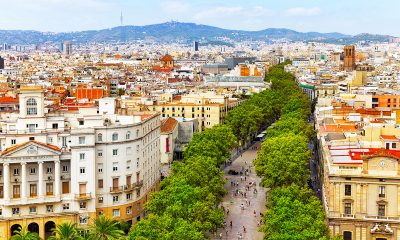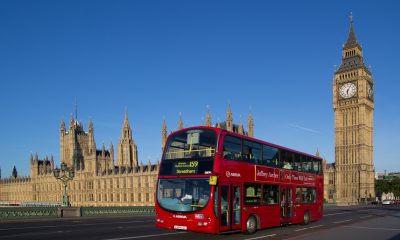World
Out in the World: LGBTQ news from Europe and Asia
Silvester Belt is first LGBTQ person to represent Lithuania in Eurovision

RUSSIA
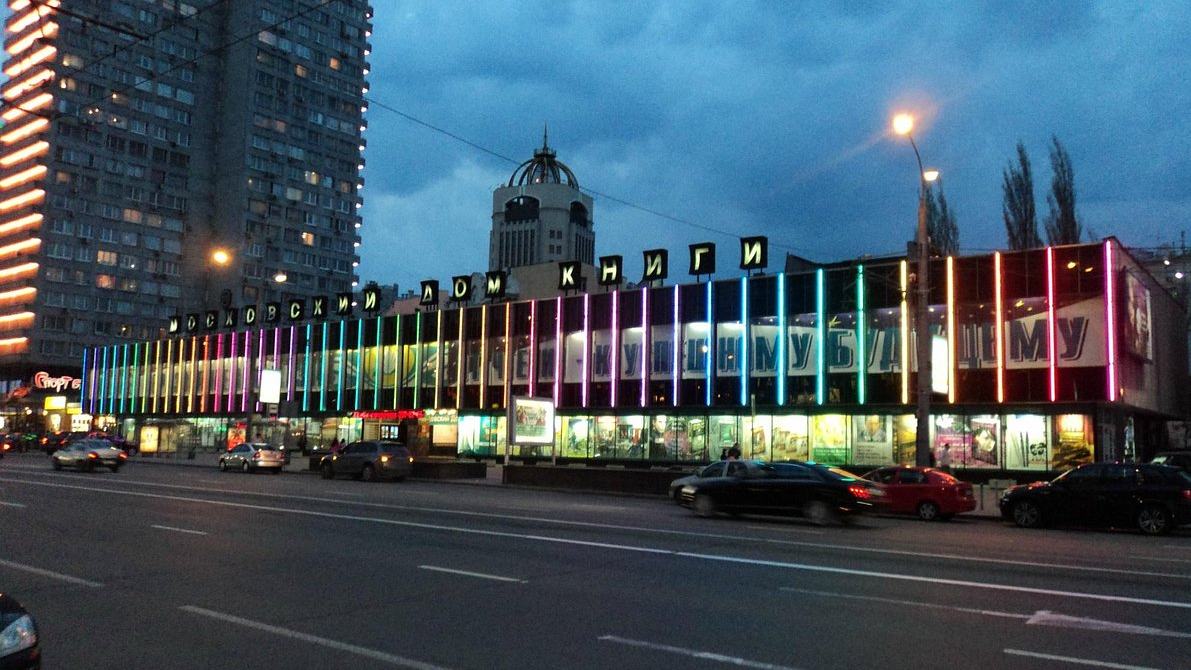
Russia’s largest publishing houses working in concert with the country’s libraries and book sellers formed an advisory union body earlier this month to address the increasingly repressive nature of laws centered around the subject matters of LGBTQ people and the war in Ukraine.
Making the task difficult is removal of materials from classic Russian literature in addition to contemporary works. Russian media outlet Vedomosti business daily reported that the Russian Book Union’s self-labeled expert center will issue recommendations on individual books, but leave the final decision to pull the books from sale up to the publishers.
According to Vedomosti, AST, one of Russia’s largest publishers, announced earlier this week that it would suspend sales of three books by U.S. authors James Baldwin and Michael Cunningham, as well as the Russian postmodern writer Vladimir Sorokin, for allegedly containing “LGBTQ propaganda,” which is now outlawed in the country.
Roberto Carnero, an Italian literature professor at the University of Bologna’s biographical who wrote a book on the openly gay Italian film director Pier Paolo Pasolini had been heavily edited with some 70 out of its 400 pages containing sections that were redacted by its Russian publisher, Reuters reported last week.
According to Carnero, speaking with the wire service, that publisher also AST, would only agree to publish his critical essay on Pasolini only with severe cuts.
“I am very concerned about this,” he said in a phone interview from Milan. “This is something that happens in dictatorships.”
The striking images of Carnero’s book have thrown a spotlight on issues of government censorship in Russia at a time when the Kremlin says it is fighting an existential war with the West to defend its “traditional values,” Reuters noted.
English language media outlet the Moscow Times reported that Russian law allows citations for scientific, educational, and critical purposes. If brought to court, Russian publishers would be forced to prove that they retold an unlicensed book for purposes that do not include entertainment.
Russian law firms say publishers risk being hit by lawsuits and fined double the value of books sold if their summaries hew too close to the original text.
LITHUANIA
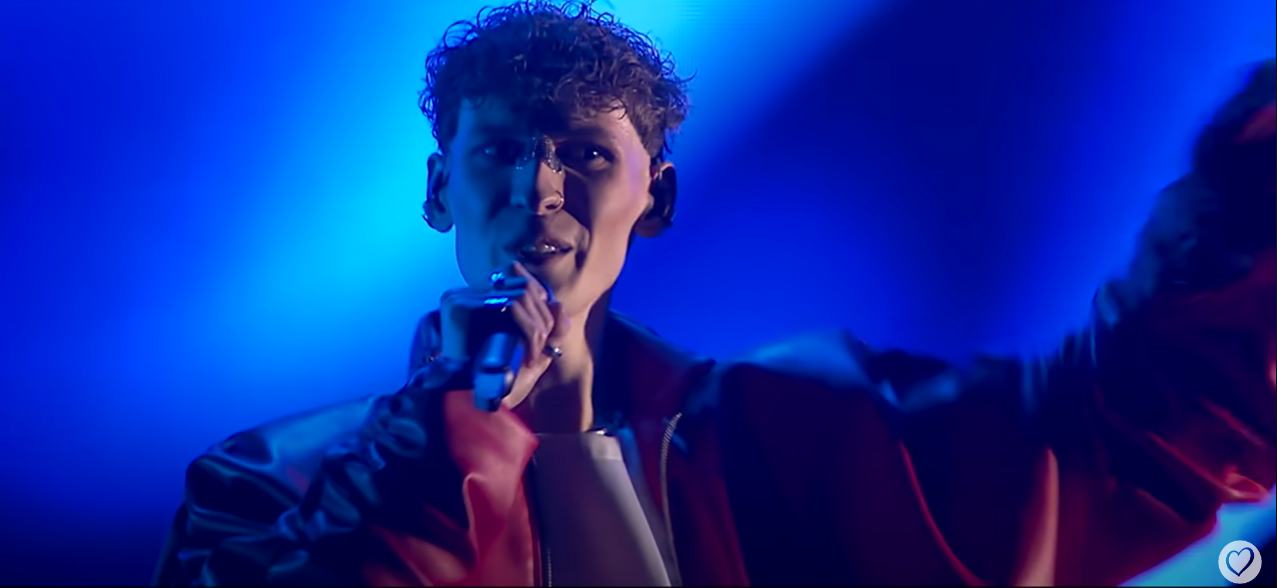
A singer-songwriter who has been entertaining audiences since he was 12-years-old is now the first openly queer person to represent Lithuania at the Eurovision Song Contest this year.
Silvester Belthe in 2010 had been a finalist in Lithuania’s preselection for the Junior Eurovision Song Contest that year and now he returns 14 years later at age 26 taking the contest by storm.
A veteran of the musical variety contest show circuit, he competed on the Lithuanian version of the “X Factor,” and the Baltic TV3 Group’s music show “Aš – superhitas,” which he won in 2017.
PinkNewsUK reported Eurovision 2024 marks Belthe’s biggest career move to-date, and so far, it’s going well. His song, hypnotic eurobanger “Luktelk,” has hit over five million Spotify streams worldwide. In Lithuania, it hit number on the charts and stayed there for several weeks.
In an interview with PinkNewsUK when asked about LGBTQ representation in his homeland’s music scene. he responded: “Zero. It’s nada. It’s non-existent,” says Belt. “Everyone is pretending to be what they’re not, and it pisses me off so much.”
Eurovision has been supportive of LGBTQ musical artists for decades, but Lithuania has never sent an out artist to the contest. According to Belthe there is a culture of fear among Lithuanian artists about being seen as queer, as they feel there is “so much at stake” and that they could “lose [their] career” if they were to ever come out he noted.
The main reason he is frustrated by the lack of LGBTQ representation in his country he tells PinkNewsUK is that he thinks it would change the population’s mindset. Six in 10 Lithuanians still believe that same-sex relationships are “wrong.”
“If every single LGBTQ artist in Lithuania, not even artists, if everyone [would] come out, I feel like Lithuania would change in a day,” he says. “It’s just crazy that we have this massive elephant in the room and we’re just pretending it’s not there.”
UNITED KINGDOM
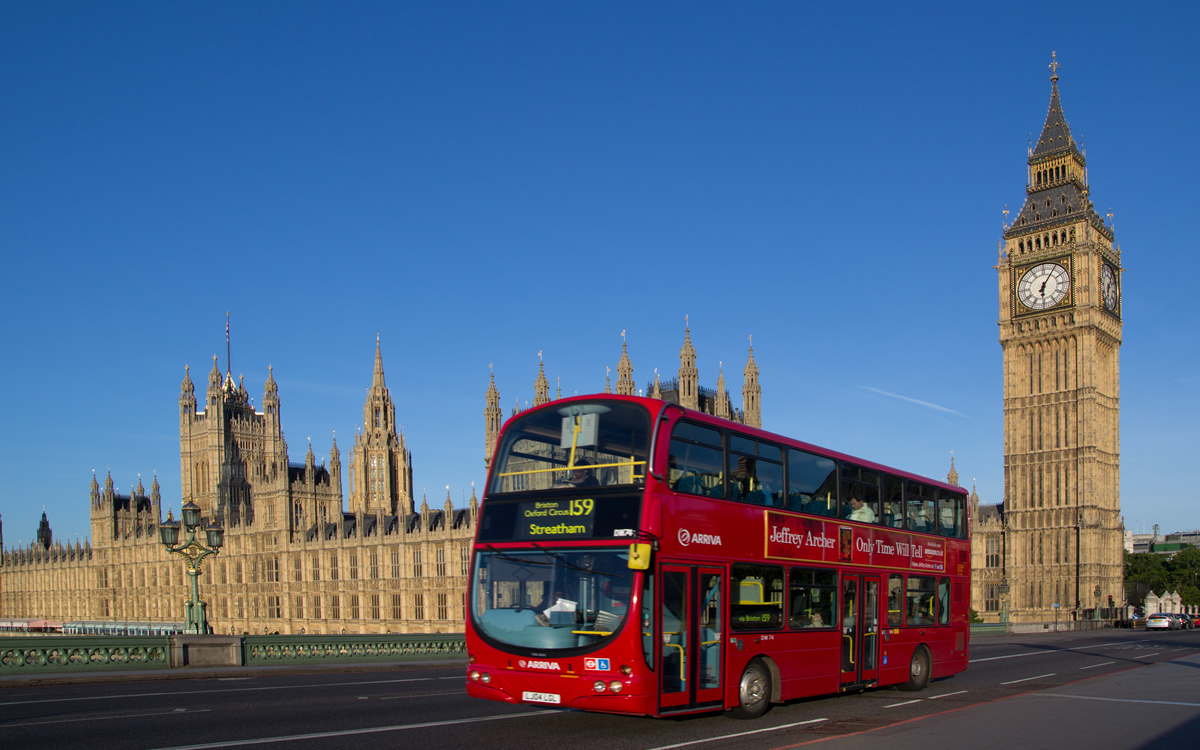
At the end of last month Deputy Foreign Secretary Andrew Mitchell announced sanctions on high profile Ugandan politicians charged with corruption, and the speaker of the Parliament of Uganda.
It is the first time the UK government has used the Global Anti-Corruption Sanctions regime on individuals involved in corruption in Uganda.
The three individuals, two of whom were previously ministers responsible for Uganda’s poorest region, Karamoja, and have been charged with corruption at Uganda’s Anti-Corruption Court, will be subject to travel bans and asset freezes.
The two former ministers sanctioned — Mary Goretti Kitutu and Agnes Nandutu — stole thousands of iron sheets used for roofing and infrastructure from a Ugandan government-funded project aimed at housing some of the most vulnerable communities in the region, providing them to prominent politicians and their families instead.
Parliament Speaker Anita Annet Among benefited from the proceeds.
Over 60 percent of people in Karamoja live in poverty and many suffer from the devastating impacts of drought and insecurity.
Mitchell said in a media statement:
“The actions of these individuals, in taking aid from those who need it most, and keeping the proceeds, is corruption at its worst and has no place in society. The Ugandan courts are rightly taking action to crack down on those politicians who seek to line their own pockets at their constituents’ expense.
Today the UK is sending a clear message to those who think benefiting at the expense of others is acceptable. Corruption has consequences and you will be held responsible,” Mitchell added.
The three individuals sanctioned were:
- Anita Annet Among, who has been the speaker of the Parliament of Uganda since 2022.
- Mary Goretti Kitutu, who was the Minister for Karamoja Affairs between 2021 and 2024.
- Agnes Nandutu, who was the State Minister for Karamoja Affairs between 2021 and 2024.
These measures follow previous UK sanctions under the Global Anti-Corruption sanctions regime, which has targeted individuals involved in serious corruption cases across the world, including Bulgaria, Lebanon, Moldova, Russia, South Africa, South Sudan, and Venezuela.
Since its introduction in April 2021, the UK has introduced sanctions on 42 individuals and entities under this regime globally to combat corruption across the world.
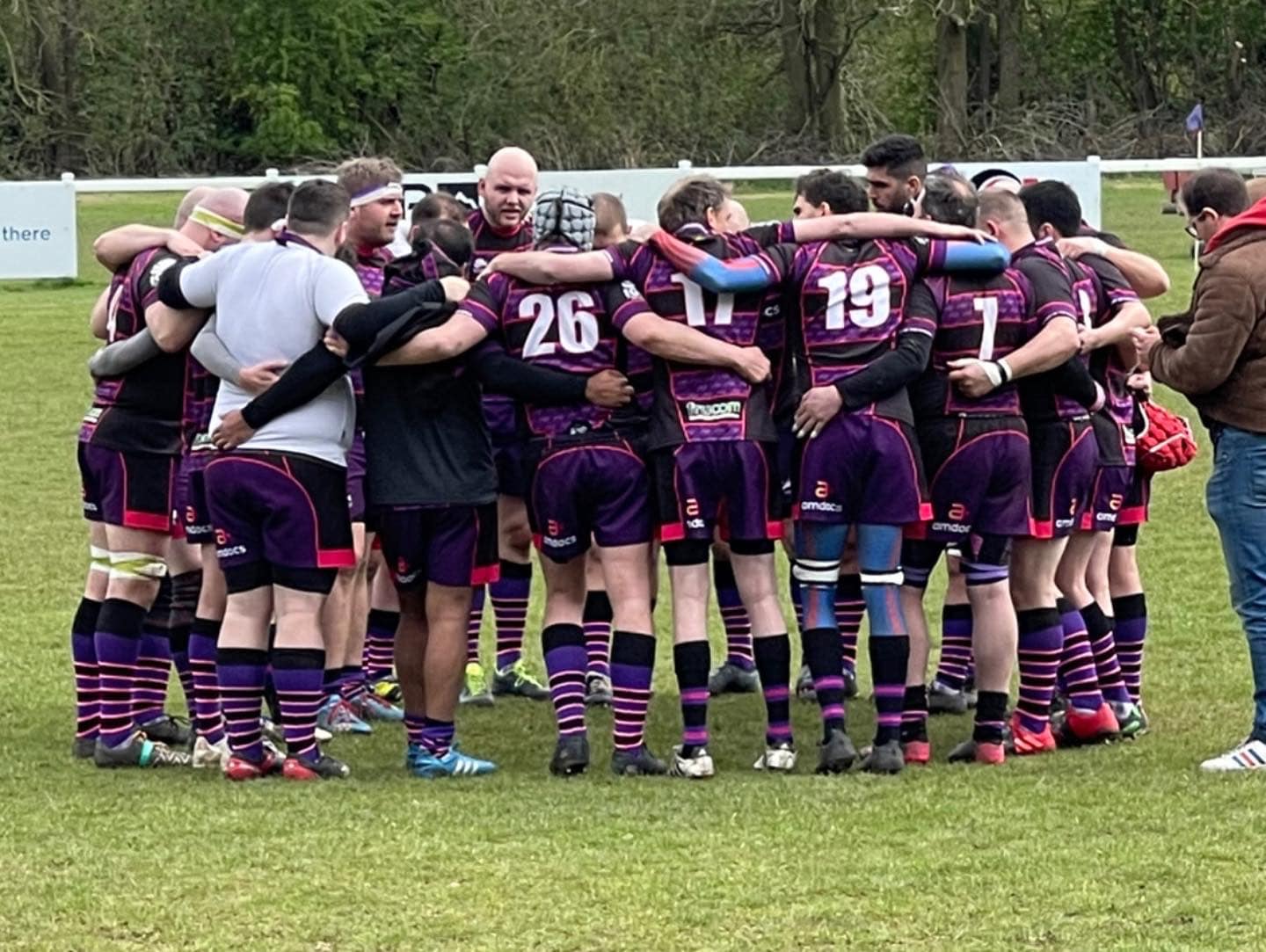
A fully inclusive rugby club, with the majority of their members being part of Berkshire’s LGBTQ community, competes against other inclusive teams from across the world.
Recently the club won the International Gay Rugby UK league for the first time in their seven year history. John Hamp, the tighthead prop, one of the three players who form the front row of the scrum, told the BBC that being part of an LGBTQ inclusive club meant “you don’t have to hide any part of yourself.”
“With any inclusive rugby team, the need is that there are people who really enjoy rugby and really enjoy the sport, but haven’t necessarily found their home in a traditional club setup,” Hamp said.
“We provide a home and a welcoming environment where anyone and everyone can come and learn the sport,” he added.
Hamp, who is also the teams’ communications manager, told the BBC an inclusive club meant “regardless of any of your defining features or characteristics, especially for us that includes a sexual orientation, you can join our club and find a safe and welcoming environment — somewhere that you can be yourself.”
“I have a rugby family, and I tried as a child, and it just didn’t feel right for me — I knew that I was a bit different, I think other people knew that I felt different, and it didn’t feel comfortable for me,” he said.
“Sadly my my father passed away and I needed to do something; I needed something different — there was a need to be with community that understood me and a connection that I wanted to get back involved in rugby.”
“So I found the unicorns, and it was the perfect marriage of those two things.”
The club was founded in 2016, and has grown in size to over 50 playing and social members. This season, the team went unbeaten, scoring over 400 points across their 11 games in the process.
NORTHERN IRELAND
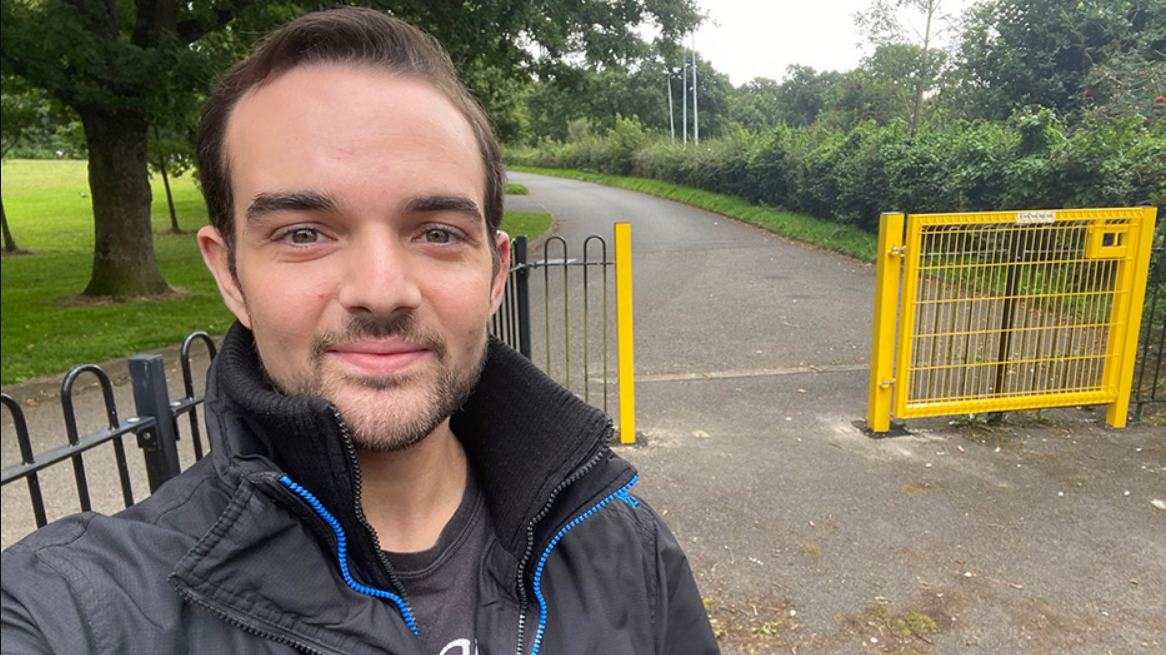
For the first time in the 132 history of the largely ceremonial role of Lord Mayor of Belfast, an openly gay man has been chosen. Micky Murray, an Alliance Party city councilman representing the Balmoral area, was selected to succeed the outgoing Sinn Féin’s Ryan Murphy in June.
On his X account Murray stated: “It’s truly an honor to have been selected by my party to be the next Lord Mayor of Belfast in June. This is a significant moment for the LGBTQ+ community, as I step into a role which has never represented us before. I look forward to getting stuck in!”
The 32-year-old politico in an interview with LGBTQ media outlet GCN Ireland said:
“In my role as Lord Mayor I want to meet people in all areas of Belfast and recognise those who are making a difference in every quarter, finding ways to work alongside them for the better.
He added: “Supporting the most vulnerable is a priority of mine, and I want to use my experience working in the homeless sector to ensure our city does more to help people.”
“I want to help transform Belfast into a more inclusive city where everyone can enjoy, regardless of who you are or where you’re from. We’re 26 years on from the Good Friday Agreement and we were promised peace, which has largely been delivered, but now is the time to further break down barriers and create a thriving city.
Our city should be recognized for its inclusivity, rather than its division. As the first openly gay Lord Mayor, I want to use this platform to represent the LGBTQ+ community and be a positive role model for them.”
In an interview with the Belfast Telegraph Murray said: “As a schoolboy who was badly bullied because of my sexuality, I never thought I’d have the privilege of serving in a role like this.”
The councilman continued: “The position of Lord Mayor has existed for over 130 years, and I’ll be the first openly LGBTQ person to hold it. It’s a huge honor for me personally to be given this opportunity by my party colleagues.
While some people may question why my sexuality is relevant, it does matter for members of my community. We are finally represented in a role we’ve never been before. It’s imbued with symbolism.”
IRELAND
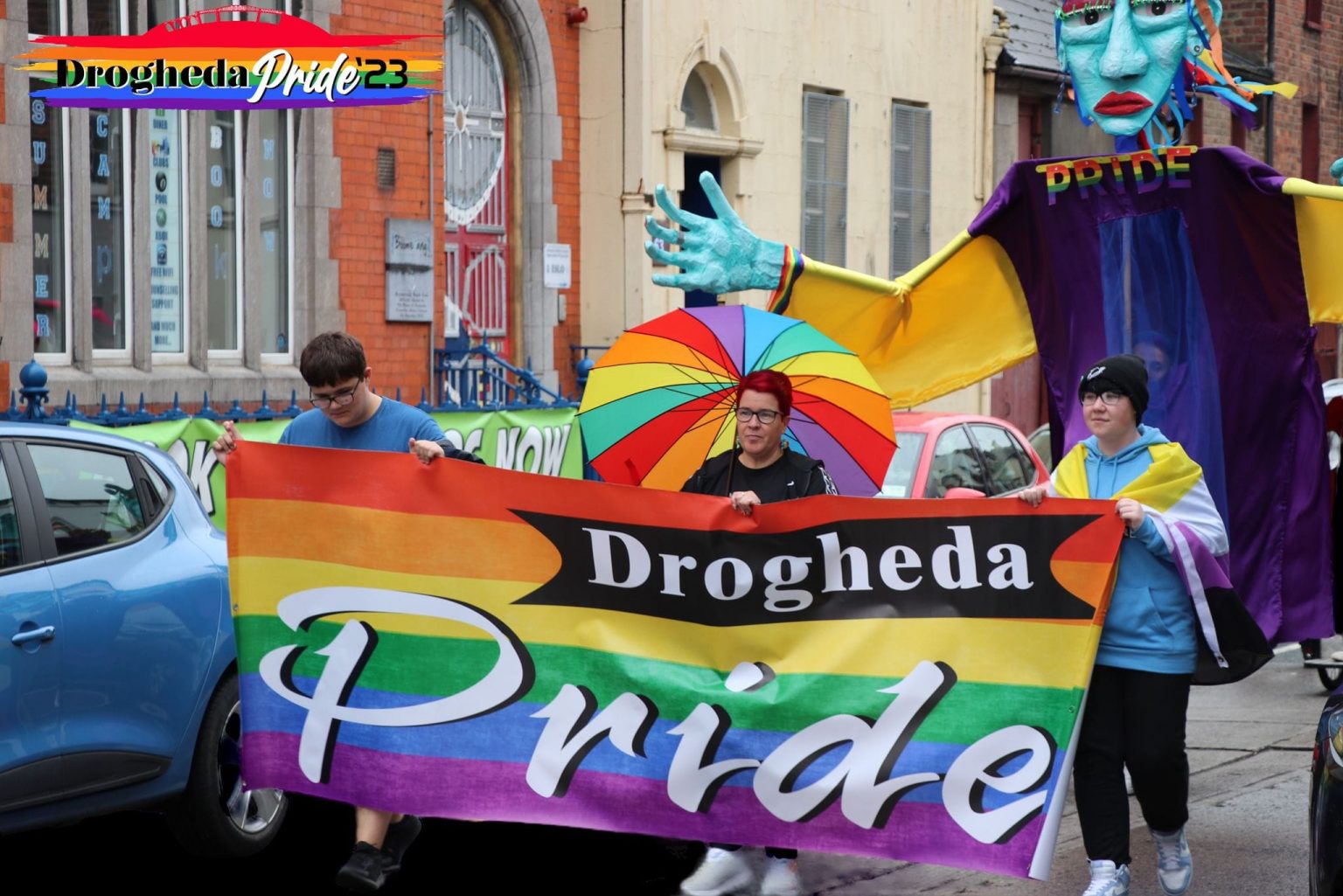
Pride is back again this year for Drogheda, an industrial and port town in County Louth on the east coast of Ireland, 26 miles north of Dublin. The four-day festival which kicks off on July 18, will include live musical performances, dance parties, film screenings, and family-friendly events.
This year’s event promises to be a fantastic experience, with preparation well underway and organizer Peter James Nugent told GCN Ireland. Nugent is working on the four-day festival, which will include live music performances, dance parties, film screenings, and family-friendly events.
This year’s parade will take place on July 20. Following the parade, talented local musical artist Kobrah Kage will headline the main event with a highly-anticipated performance.
GCN also reported that Festival organizers are also calling upon anyone with a talent, be it a drag queen, a singer, a dancer, or any other talent, to apply to be a part of the 2024 fantastic event. This is a great opportunity for the local community to showcase their support and join in the celebrations. A complete listing of events is available on Drogheda Pride’s socials and their website.
Additional reporting from the BBC, PinkNewsUK, The Moscow Times, Agence France-Presse the Belfast Telegraph, and GCN Ireland.
India
Anaya Bangar challenges ban on trans women in female cricket teams
Former Indian cricketer Sanjay Bangar’s daughter has received support

Anaya Bangar, the daughter of former Indian cricketer Sanjay Bangar, has partnered with the Manchester Metropolitan University Institute of Sport in the U.K. to assess her physiological profile following her gender-affirming surgery and undergoing hormone replacement therapy.
From January to March 2025, the 23-year-old underwent an eight-week research project that measured her glucose levels, oxygen uptake, muscle mass, strength, and endurance after extensive training.
The results, shared via Instagram, revealed her metrics align with those of cisgender female athletes, positioning her as eligible for women’s cricket under current scientific standards. Bangar’s findings challenge the International Cricket Council’s 2023 ban on transgender athletes in women’s cricket, prompting her to call for a science-based dialogue with the Board of Control for Cricket in India and the ICC to reform policies for transgender inclusion.
“I am talking with scientific evidence in my hand,” Bangar said in an interview posted to her Instagram page. “So, I hope, this makes an impact and I will be hoping to BCCI and ICC talking with me and discussing this further.”
On Nov. 21, 2023, the ICC enacted a controversial policy barring trans women from international women’s cricket. Finalized after a board meeting in Ahmedabad, India, the regulation prohibits any trans player who has experienced male puberty from competing, irrespective of gender-affirming surgery or hormone therapy. Developed through a 9-month consultation led by the ICC’s Medical Advisory Committee, the rule aims to safeguard the “integrity, safety, and fairness” of women’s cricket but has drawn criticism for excluding athletes like Canada’s Danielle McGahey, the first trans woman to play internationally. The policy, which allows domestic boards to set their own rules, is slated for review by November 2025.
Bangar shared a document on social media verifying her participation in a physiological study at the Manchester Metropolitan University Institute of Sport, conducted from Jan. 20 to March 3, 2025, focused on cricket performance. The report confirmed that her vital metrics — including haemoglobin, blood glucose, peak power, and mean power — aligned with those of cisgender female athletes. Initially, her fasting blood glucose measured 6.1 mmol/L, slightly above the typical non-diabetic range of 4.0–5.9 mmol/L, but subsequent tests showed it normalized, reinforcing the study’s findings that her physical profile meets female athletic standards.
“I am submitting this to the BCCI and ICC, with full transparency and hope,” said Bangar. “My only intention is to start a conversation based on facts not fear. To build space, not divide it.”
In a letter to the BCCI and the ICC, Bangar emphasized her test results from the Manchester Metropolitan University study. She explained that the research aimed to assess how hormone therapy had influenced her strength, stamina, haemoglobin, glucose levels, and overall performance, benchmarked directly against cisgender female athletic standards.
Bangar’s letter to the BCCI and the ICC clarified the Manchester study was not intended as a political statement but as a catalyst for a science-driven dialogue on fairness and inclusion in cricket. She emphasized the importance of prioritizing empirical data over assumptions to shape equitable policies for trans athletes in the sport.
Bangar urged the BCCI, the world’s most influential cricket authority, to initiate a formal dialogue on trans women’s inclusion in women’s cricket, rooted in medical science, performance metrics, and ethical fairness. She called for the exploration of eligibility pathways based on sport-specific criteria, such as haemoglobin thresholds, testosterone suppression timelines, and standardized performance testing. Additionally, she advocated for collaboration with experts, athletes, and legal advisors to develop policies that balance inclusivity with competitive integrity.
“I am releasing my report and story publicly not for sympathy, but for truth. Because inclusion does not mean ignoring fairness, it means measuring it, transparently and responsibly,” said Bangar in a letter to the BCCI. “I would deeply appreciate the opportunity to meet with you or a representative of the BCCI or ICC to present my findings, discuss possible policy pathways, and work towards a future where every athlete is evaluated based on real data, not outdated perceptions.”
Before her transition, Bangar competed for Islam Gymkhana in Mumbai and Hinckley Cricket Club in the U.K., showcasing her talent in domestic cricket circuits. Her father, Sanjay Bangar, was a dependable all-rounder for the Indian national cricket team from 2001 to 2004, playing 12 test matches and 15 One Day Internationals. He later served as a batting coach for the Indian team from 2014 to 2019, contributing to its strategic development.
Cricket in India is a cultural phenomenon, commanding a fanbase of more than 1 billion, with more than 80 percent of global cricket viewership originating from the country.
The International Cricket Council, the sport’s governing body, oversees 12 full member nations and more than 90 associate members, with the U.S. recently gaining associate member status in 2019 and co-hosting the 2024 ICC Men’s T20 World Cup. The BCCI generated approximately $2.25 billion in revenue in the 2023–24 financial year, primarily from the Indian Premier League, bilateral series, and ICC revenue sharing. The ICC earns over $3 billion from media rights in India alone for the 2024–27 cycle, contributing nearly 90 percent of its global media rights revenue, with the BCCI receiving 38.5 percent of the ICC’s annual earnings, approximately $231 million per year.
Women’s cricket in India enjoys a growing fanbase, with over 300 million viewers for the Women’s Premier League in 2024, making it a significant driver of the sport’s global popularity. The International Cricket Council oversees women’s cricket in 12 full member nations and over 90 associate members, with the U.S. fielding a women’s team since gaining associate status in 2019 and competing in ICC events like the 2024 Women’s T20 World Cup qualifiers. The BCCI invests heavily in women’s cricket, allocating approximately $60 million annually to the WPL and domestic programs in 2024–25, while contributing to the ICC’s $20 million budget for women’s cricket development globally. India’s media market for women’s cricket, including WPL broadcasting rights, generated $120 million in 2024, accounting for over 50 percent of the ICC’s women’s cricket media revenue.
“As a woman, I feel when someone says that they are women, then they are, be trans or cis. A trans woman is definitely the same as a cis woman emotionally and in vitals, and specially, when someone is on hormone replacement therapy. Stopping Anaya Bangar from playing is discrimination and violation of her rights. It is really sad and painful that every transwoman need to fight and prove their identity everywhere,” said Indrani Chakraborty, an LGBTQ rights activist and a mother of a trans woman. “If ICC and BCCI is stopping her from playing for being transgender, then I will say this to be their lack of awareness and of course the social mindsets which deny acceptance.”
Chakraborty told the Blade that Bangar is an asset, no matter what. She said that the women’s cricket team will only benefit by participation, but the discriminating policies are the hindrance.
“Actually the transgender community face such discrimination in every sphere. In spite of being potent, they face rejection. This is highly inhuman. These attitudes is regressive and will never let to prosper. Are we really in 2025?,” said Chakraborty. “We, our mindset and the society are the issues. We, as a whole, need to get aware and have to come together for getting justice for Anaya. If today, we remain silent, the entire community will be oppressed. Proper knowledge of gender issues need to be understood.”
The BCCI and the International Cricket Council have not responded to the Blade’s repeated requests for comment.
El Salvador
La marcha LGBTQ desafía el silencio en El Salvador
Se realizó el evento en San Salvador bajo la lluvia, pero con orgullo

SAN SALVADOR, El Salvador — El reloj marcaba el mediodía cuando los primeros colores del arcoíris comenzaron a ondear frente a la emblemática Plaza del Divino Salvador del Mundo. A pesar de la incertidumbre generada en redes sociales, donde abundaban los rumores sobre una posible cancelación de la marcha por la diversidad sexual, la ciudad capital comenzaba a llenarse de esperanza, de resistencia y de orgullo.
Este año, la Marcha del Orgullo LGBTQ+ en El Salvador se desarrolló en un contexto tenso, en medio de un clima político que reprime y silencia a las voces disidentes.
“Aunque las estadísticas digan que no existimos, viviendo en El Salvador, un país donde hoy, después de décadas de avances, defender los derechos humanos es de nuevo una causa perseguida, criminalizada y silenciada”, afirmaron representantes de la Federación Salvadoreña LGBTQ+.
A pesar de la cancelación del festival cultural que usualmente acompaña la marcha, los colectivos decidieron seguir adelante con la movilización, priorizando el sentido original de la actividad: salir a las calles para visibilizarse, exigir respeto a sus derechos y recordar a quienes ya no están.
A la 1:30 p.m., una fuerte lluvia comenzó a caer sobre la ciudad. Algunas de las personas presentes corrieron a refugiarse, mientras otras, debajo de sombrillas y de los escasos árboles en la plaza, decidieron mantenerse firmes. Los comentarios pesimistas no se hicieron esperar: “a lo mejor la cancelan por el clima”, “no se ve tanta gente como otros años”. Sin embargo, lo que siguió fue una muestra de resistencia: a las 2:05 p.m. las voces comenzaron a llamar a tomar las calles.
Visibilidad como resistencia
La marcha arrancó bajo una llovizna persistente. La Avenida Roosevelt y la Alameda Juan Pablo II se tiñeron de colores con banderas arcoíris, trans, lésbicas, bisexuales y otras que representan a los diversos sectores de la población LGBTQ. Cada bandera alzada fue un acto político, cada paso una declaración de existencia.
Desde la Plaza del Divino Salvador del Mundo hasta la Plaza Gerardo Barrios, frente a Catedral Metropolitana y el Palacio Nacional, la marcha se convirtió en un carnaval de dignidad. Carteles con frases como “El amor no se reprime”, “Mi existencia no es delito” o “Marcho por quien ya no puede hacerlo” se alzaron entre las multitudes.
La movilización fue también un espacio para recordar a quienes han perdido la vida por la discriminación y el rechazo. Familias que marcharon por hijos, hijas o amigues que se suicidaron a causa del estigma. Personas que caminaron por quienes aún viven en el miedo, por quienes no pudieron salir del clóset, por quienes se han ido del país huyendo de la violencia.
Arte, fe y rebeldía
Una de las escenas más llamativas fue protagonizada por Nelson Valle, un joven gay que marchó vestido como sacerdote.
“Hay muchas personas que secretamente asisten a ritos religiosos como en Semana Santa, y les gusta vivir en lo oculto. Pero la fe debe ser algo libre porque Dios es amor y es para todos”, dijo.
Valle utilizó su vestimenta como una forma de protesta contra las estructuras religiosas que aún condenan la diversidad sexual.
“Un ejemplo de persona que abrió el diálogo del respeto fue el papa Francisco, abrió la mente y muy adelantado a su tiempo, porque dejó claro que hay que escuchar a toda persona que quiere encontrar a Dios”, agregó.
La marcha también incluyó bandas musicales, grupos de cachiporristas, carrozas artísticas, colectivos provenientes de distintos puntos del país, y manifestaciones de orgullo en todas sus formas. Fue un mosaico cultural que mostró la riqueza y diversidad de la población LGBTQ en El Salvador.

Una lucha que persiste
Las organizaciones presentes coincidieron en su mensaje: la lucha por la igualdad y el reconocimiento no se detiene, a pesar de los intentos del Estado por invisibilizarlos.
“Nuestros cuerpos se niegan a ser borrados y a morir en la invisibilidad de registros que no guardan nuestros nombres ni nuestros géneros”, declararon representantes de la Federación.
Además, agregaron: “Desde este país que nos quiere callar, levantamos nuestras voces: ¡La comunidad LGBTIQ+ no se borra! ¡El Salvador también es nuestro! Construyamos, entre todes, un país donde podamos vivir con Orgullo.”
El ambiente fue de respeto, pero también de desconfianza. La presencia de agentes policiales no pasó desapercibida. Aunque no hubo reportes oficiales de violencia, varias personas expresaron su temor por posibles represalias.
“Marchar hoy es también un acto de valentía”, comentó Alejandra, una joven lesbiana que viajó desde Santa Ana para participar. “Pero tenemos derecho a vivir, a amar, a soñar. Y si nos detenemos, les damos la razón a quienes nos quieren ver en silencio.”
Rumbo al futuro
Concluida la marcha frente a Catedral y el Palacio Nacional, muchas personas permanecieron en la plaza compartiendo abrazos, fotos y palabras de aliento. No hubo festival, no hubo escenario, pero hubo algo más valioso: una comunidad que sigue viva, que sigue resistiendo.
Los retos son muchos: falta de leyes de protección y que apoye las identidades de las personas trans, discriminación laboral, violencia por prejuicio, rechazo familiar, y una narrativa estatal que pretende que no existen. Pero la marcha del 28 de junio demostró que, aunque el camino sea cuesta arriba, la dignidad y el orgullo no se borran.
La lucha por un El Salvador más justo, más plural y más inclusivo continúa. En palabras de uno de los carteles más llamativos de ese día: “No estamos aquí para pedir permiso, estamos aquí para recordar que también somos parte de este país”.
Hungary
Upwards of 100K people march in Budapest Pride
Participants defined Hungarian government’s ban on public LGBTQ events
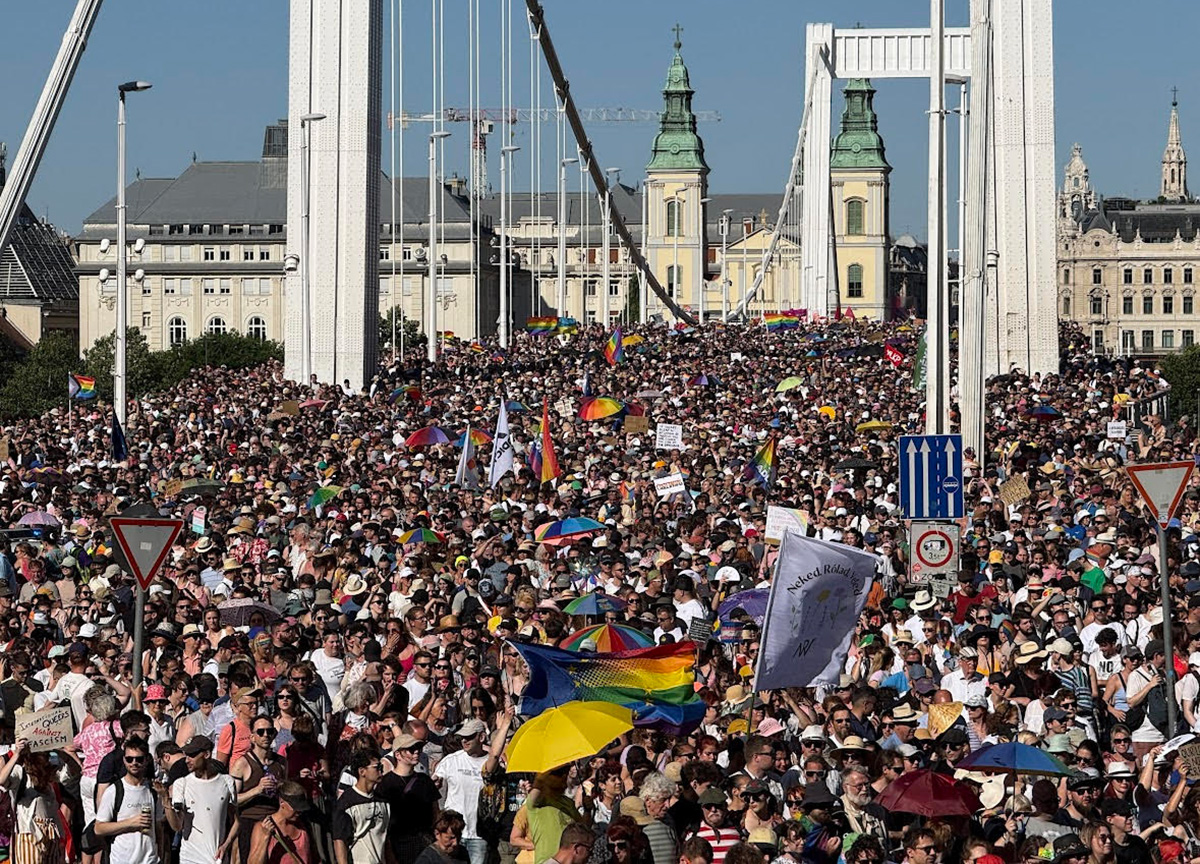
More than 100,000 people on Saturday defied the Hungarian government’s ban on public LGBTQ events and participated in the 30th annual Budapest Pride parade.
The New York Times published a picture that shows throngs of people marching on Budapest’s Erzsébet Bridge over the Danube River. Openly gay MEP Krzysztof Śmiszek, who was previously Poland’s deputy justice minister, is among the dozens of European lawmakers who participated in the march that began at Budapest City Hall.
The New York Times reported Hungarian police officers stood along the march, but they did not try to stop it. Śmiszek described the march to the Washington Blade as “beautiful and huge.”
“[It was] very peaceful and political,” he said.
Prime Minister Viktor Orbán and his Fidesz-KDNP coalition government have faced widespread criticism over its anti-LGBTQ crackdown.
Hungarian lawmakers in March passed a bill that bans Pride events and allow authorities to use facial recognition technology to identify those who participate in them. MPs in April amended the Hungarian constitution to ban public LGBTQ events.
Budapest Mayor Gergely Karácsony endorsed the march, even though Orbán’s government threatened to arrest him and fine participants.
“Today a country shows that no ruling party can tell it on what topic, for what cause it is allowed to march and why not,” said Budapest Pride President Viktória Radványi on Saturday in a Facebook post. “A country demonstrates that whoever will be in government can count on us: dedicated, persistent citizens intolerant to oppression, who will organize themselves and stand against tyranny with their heads held high.”
More than two dozen activists in D.C. who protested outside the Hungarian Embassy on Friday expressed their support for Budapest Pride.
(Washington Blade video by Michael K. Lavers)
-

 U.S. Supreme Court3 days ago
U.S. Supreme Court3 days agoSupreme Court upholds ACA rule that makes PrEP, other preventative care free
-

 U.S. Supreme Court3 days ago
U.S. Supreme Court3 days agoSupreme Court rules parents must have option to opt children out of LGBTQ-specific lessons
-

 India5 days ago
India5 days agoIndian court rules a transgender woman is a woman
-

 National4 days ago
National4 days agoEvan Wolfson on the 10-year legacy of marriage equality

